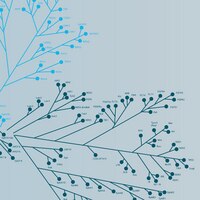14-663 Sigma-AldrichCaM Kinase I Protein, active, 10 µg
Active, N-terminal GST-tagged, recombinant, human CaMK1, amino acids 2-end. For use in Kinase Assays.
More>> Active, N-terminal GST-tagged, recombinant, human CaMK1, amino acids 2-end. For use in Kinase Assays. Less<<Recommended Products
Overview
| Replacement Information |
|---|
| Description | |
|---|---|
| Catalogue Number | 14-663 |
| Brand Family | Upstate |
| Trade Name |
|
| Description | CaM Kinase I Protein, active, 10 µg |
| Overview | N-terminal GST-tagged, recombinant, human CaMK1, amino acids 2-end. |
| References |
|---|
| Product Information | |
|---|---|
| Presentation | 50mM Tris-HCl, pH 7.5, 150mM NaCl, 0.1mM EGTA, 0.03% Brij-35, 50% glycerol, 1mM benzamidine, 0.2mM PMSF, 0.1% 2-mercaptoethanol. |
| Quality Level | MQ100 |
| Applications | |
|---|---|
| Application | Active, N-terminal GST-tagged, recombinant, human CaMK1, amino acids 2-end. For use in Kinase Assays. |
| Key Applications |
|
| Physicochemical Information |
|---|
| Dimensions |
|---|
| Materials Information |
|---|
| Toxicological Information |
|---|
| Safety Information according to GHS |
|---|
| Safety Information |
|---|
| Storage and Shipping Information | |
|---|---|
| Storage Conditions | 6 months at -20°C |
| Packaging Information | |
|---|---|
| Material Size | 10 µg |
| Transport Information |
|---|
| Supplemental Information |
|---|
| Specifications |
|---|
| Global Trade Item Number | |
|---|---|
| Catalogue Number | GTIN |
| 14-663 | 04053252285769 |
Documentation
CaM Kinase I Protein, active, 10 µg SDS
| Title |
|---|
CaM Kinase I Protein, active, 10 µg Certificates of Analysis
| Title | Lot Number |
|---|---|
| CaM Kinase I, active - 042334C | 042334C |
| CaM Kinase I, active - 042334D | 042334D |











[ABE421_IHC(P)-ALL].jpg)



